On the morning of August 2, in Buon Ma Thuot city, Dak Lak province, Deputy Prime Minister Tran Luu Quang led the working delegation of the Economic and Social Subcommittee of the 14th National Party Congress to work in the Central Highlands region.
Also attending the conference were members of the Socio-Economic Subcommittee, representatives of relevant ministries and departments, leaders of the Provincial Party Committee and People's Committees of 5 Central Highlands provinces.
On the Dak Lak side, there were comrades: Nguyen Dinh Trung - Secretary of the Provincial Party Committee; Huynh Thi Chien Hoa - Chairman of the Provincial People's Council; Pham Ngoc Nghi - Chairman of the Provincial People's Committee; leaders of relevant departments and branches.
Delegates attending the meeting
At the meeting, leaders of the Central Highlands provinces reported on the implementation of the Resolution of the 13th National Party Congress, the Socio-Economic Development Strategy for the 2021-2030 period and the Resolution of the Party Congresses of localities; shared experiences and good lessons in socio-economic development; pointed out difficulties and obstacles in the development process and made proposals and recommendations to the Central Government.
Localities also appreciated the approach of the Socio-Economic Subcommittee when it had direct working sessions with localities instead of summarizing the implementation of Central Resolutions in writing.
In addition to the achieved results, the localities in the Central Highlands also reflected the bottlenecks that are hindering the development process, especially the limited connection of intra-regional infrastructure with economic centers; the quality of human resources is still inadequate, leading to difficulties in attracting investment; the potential advantages of forests have not been effectively exploited to create livelihoods for people living and getting rich from the forests; the quality of health care is still inadequate, the work of protecting and promoting the cultural values of the Central Highlands has not received due attention. The problem of bauxite planning is hindering the implementation of public investment projects, especially national key projects, in Lam Dong and Dak Nong . The provinces in the Central Highlands proposed to re-inventory the forests in the Central Highlands to clearly determine the current status of the forests, as a basis for allocating residential land and production land for ethnic minorities.
Comrade Tran Luu Quang, member of the Party Central Committee, Deputy Prime Minister, Standing member of the Economic - Social Subcommittee chaired the Conference.
Regarding human resource development, the Central Highlands provinces recommended that the Central Government increase the number, facilities, and teachers for district-level boarding schools and vocational schools; have stronger policies from the training, recruitment, and professional development stages for ethnic minority cadres.
Localities also recommended that the Central Government decentralize to localities the adjustment of provincial planning, appraisal of economic development projects; pay attention to investment in preserving the culture of the Central Highlands ethnic groups so that culture can truly become a resource for sustainable development; and pay more attention to grassroots officials.
Representatives of central ministries and branches must initially respond to local opinions and recommendations; update on the status of amendments, supplements, and promulgation of regulations on land use indicators, bauxite planning, granting residential land and living land to ethnic minorities, and printing textbooks for ethnic minority students.
Representatives of several ministries and sectors also updated information on the orientation of healthcare development, protection and promotion of the cultural values of the Central Highlands, and ethnic minority population census, while suggesting new motivations for the Central Highlands to develop faster and more sustainably.
Comrade Nguyen Dinh Trung - Member of the Party Central Committee, Secretary of Dak Lak Provincial Party Committee spoke at the meeting.
According to the Ministry of Planning and Investment, in the period of 2021-2023, the Central Highlands and the Red River Delta are the two regions with the highest growth rates in the country: the Central Highlands (7.1%/year), the Red River Delta (7.3%/year); much higher than other regions (the North Central region, the Central Coast increased by 6.8%/year; the Northern Midlands and Mountains increased by 6.5%/year; the Mekong Delta was 5.0%/year and the Southeast region was the lowest, reaching 3.5%/year.
The Central Highlands is the only region that has achieved the growth target set out in the Politburo's Resolutions on socio-economic development and ensuring national defense and security in the regions (According to Resolution 23 of the Politburo, the growth target of the Central Highlands region in the 2021-2030 period is 7-7.5%/year).
In addition, in the 2021-2023 period, most localities in the region increased by an average of more than 7%/year (Kon Tum and Dak Nong: 7.8%; Gia Lai: 7.1%; Dak Lak: 7.0%); only Lam Dong (increased by 6.8%) was below 7%.
In the 3 sectors, the industrial sector increased by 14% (In which: Electricity production and distribution increased by 18.3%, processing and manufacturing industry increased by 7.6%), the agricultural sector increased by 5.7%, the service sector increased by 6.6% (In which: Accommodation and catering services increased very high by 20.1%). In general, the sectors in which the Central Highlands has advantages all grew highly, such as the energy industry and agriculture.
In addition to favorable factors, the Central Highlands provinces are facing difficulties and limitations such as: The level of economic development and people's living standards in the region are still low, the average GRDP per capita of the Region in 2023 reached nearly 67 million VND, the lowest in the country. The infrastructure system in general does not meet the requirements of socio-economic development, the density of roads is low, the rate of trained workers in 2023 of the Region reached 18.2%, only higher than the Mekong Delta...
Comrade Pham Ngoc Nghi - Chairman of Dak Lak Provincial People's Committee participated in giving opinions and proposals to the Subcommittee.
Proposing the economic growth target for the 2025-2030 period, the Ministry of Planning and Investment said that according to Resolution 23 of the Politburo, the growth target of the Central Highlands region in the 2021-2030 period is 7-7.5%. In the 2021-2023 period, the region will reach 7.12%/year, achieving the target set in Resolution 23; it is expected that in the 2026-2030 period, the whole region's economy will need to grow at 7-7.7%/year. If the Central Highlands maintains the current growth rate until 2030, it will achieve the set target, but the region needs a higher growth rate to gradually narrow the development gap with other regions and contribute more to the overall growth of the country.
Minister of Agriculture and Rural Development Le Minh Hoan suggests space for economic development in the Central Highlands region
The leader of Kon Tum Provincial People's Committee proposed to the Economic - Social Subcommittee of the 14th National Party Congress
Regarding the development orientation of a number of industries and fields in the Central Highlands, the Ministry of Planning and Investment suggests that it is necessary to concentrate resources and have key policies to develop advantageous industries. For the Central Highlands, these are agriculture, tourism, agricultural processing industry, renewable energy, mining and processing industry of bauxite, alumina, aluminum... Encourage the formation of high-tech, highly efficient agricultural models associated with processing, forming agricultural value chains to take advantage of export opportunities. Focus on environmental protection, especially protecting water resources, forests and biodiversity of the region. Focus on completing on schedule the expressways Khanh Hoa - Buon Ma Thuot, Quy Nhon - Pleiku - Le Thanh, Dau Giay - Lien Khuong, Chon Thanh - Gia Nghia...; connecting intra-regional and extra-regional traffic...
Comrade Y Vinh Tor, alternate member of the Party Central Committee, Deputy Minister, Vice Chairman of the Ethnic Committee, discussed ethnic policy building at the working session.
In his concluding remarks at the meeting, Comrade Tran Luu Quang, member of the Party Central Committee, Deputy Prime Minister highly appreciated the enthusiastic and responsible opinions of the localities and the efforts of the Central Highlands provinces. In the period of 2021-2023, the whole region and the provinces have achieved many results, notably the growth rate of 7.1%/year.
Deputy Prime Minister Tran Luu Quang emphasized that the Central Highlands is a region that always has a particularly important strategic role and position in terms of economy, politics, society, national defense and security of the whole country, so the general spirit is that there needs to be priority mechanisms, policies, and resources for this region in the coming time with the common spirit of achieving the goal that the Socio-Economic Subcommittee must make a very important document, which is to evaluate the 5-year implementation of the socio-economic development strategy and orientation in the coming time.
Deputy Prime Minister Tran Luu Quang stated that from the documents of the localities, we have compiled them into documents of the National Party Congress. With the extremely important position of the Central Highlands, there must be some meaning in the documents so that we have a new policy, a new direction to promote the development of the Central Highlands worthy of its stature. Proposing that the provinces focus on the goal of stabilizing the political security situation to serve development; proactively proposing tasks that need to be decentralized by the central government to localities; paying attention to ethnic affairs, training ethnic minority cadres; forest protection management, synchronous planning, planning targets to meet green development figures, response mechanisms for all types of planning to orient development rather than being barriers; training human resources for the state agency system...
The Deputy Prime Minister also reminded localities to comply with planning in a synchronous manner, and emphasized the need for a mechanism to handle conflicts in planning so that planning can truly be a guideline and not a barrier to the development process.
Regarding forest inventory, the Deputy Prime Minister said that the Central Highlands will be the first to conduct an inventory by applying technology to ensure accuracy and transparency, and that no one can interfere with the inventory results, creating a basis for calculating land allocation for ethnic minorities.
Regarding forest management and protection, through survey trips to localities, the Deputy Prime Minister agreed with the need to evaluate and readjust forest management and protection personnel and forest management models for efficiency, preventing and combating the risk of deforestation and forest fires.
The Deputy Prime Minister also asked the Central Highlands provinces to prepare good personnel for Party Congresses at all levels, paying special attention to cadres working on ethnic affairs and cadres who are ethnic minorities.
Assign the Ministry of Planning and Investment to survey good models of provinces, receive proposals from localities to continue reviewing and completing reports of the Socio-Economic Subcommittee of the 14th National Congress of Delegates.
Expected ability to complete the goals set out in the Resolution of the 17th Dak Lak Provincial Party Congress, term 2020 - 2025 It is expected that 12/16 targets will reach and exceed the 5-year plan, including: (1) Gross social product, (2) GRDP per capita, (3) Mobilization of social investment capital, (4) Total export turnover, (5) Total retail sales of goods and consumer service revenue, (6) Infrastructure development, (7) Poverty reduction, (8) Labor, employment, (9) Rate of schools meeting national standards, (10) Health, (11) Administrative reform, (12) National defense and security. It is expected that 03/16 main targets and 01 component target are likely to fail to meet the 5-year plan, including: (1) Total revenue to balance the state budget in the area; (2) Enterprise development; (3) Rate of communes meeting new rural standards and number of district-level units completing new rural standards and component target of rate of industrial parks and clusters in operation with centralized wastewater treatment systems meeting environmental standards. Therefore, the tasks set for the remaining years are very heavy, requiring great efforts and efforts from all levels, sectors and localities to fulfill the 16 socio-economic development targets, ensuring national defense and security according to the Resolution of the 17th Provincial Party Congress. |
Source: https://daklak.gov.vn/-/tieu-ban-kinh-te-xa-hoi-ai-hoi-xiv-cua-ang-lam-viec-tai-vung-tay-nguyen


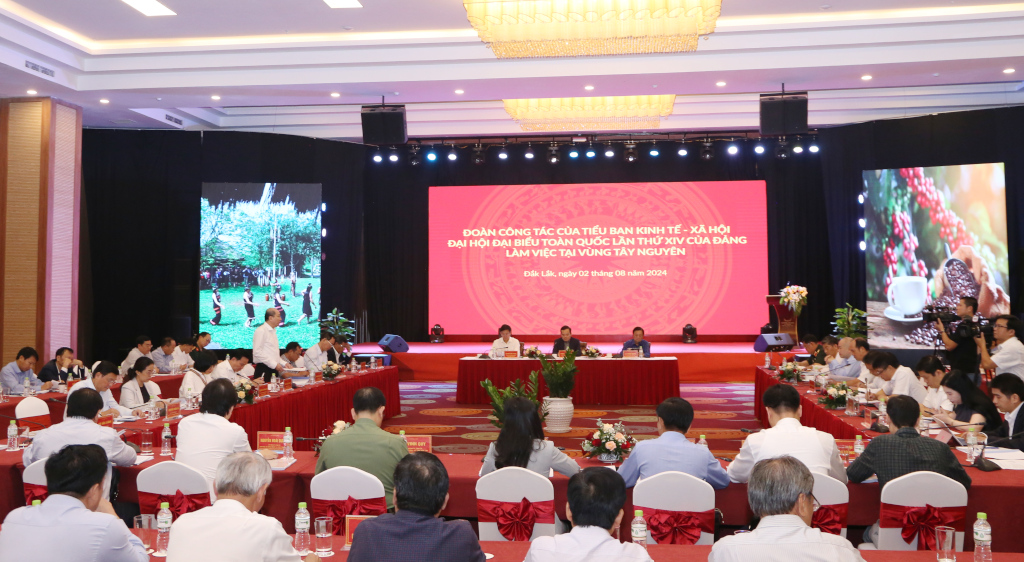
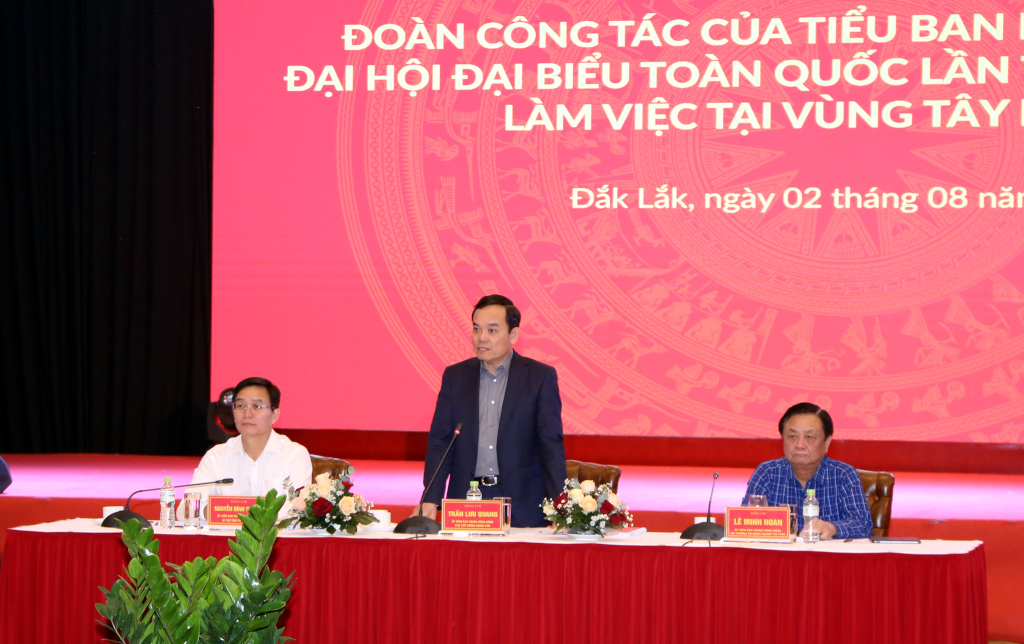
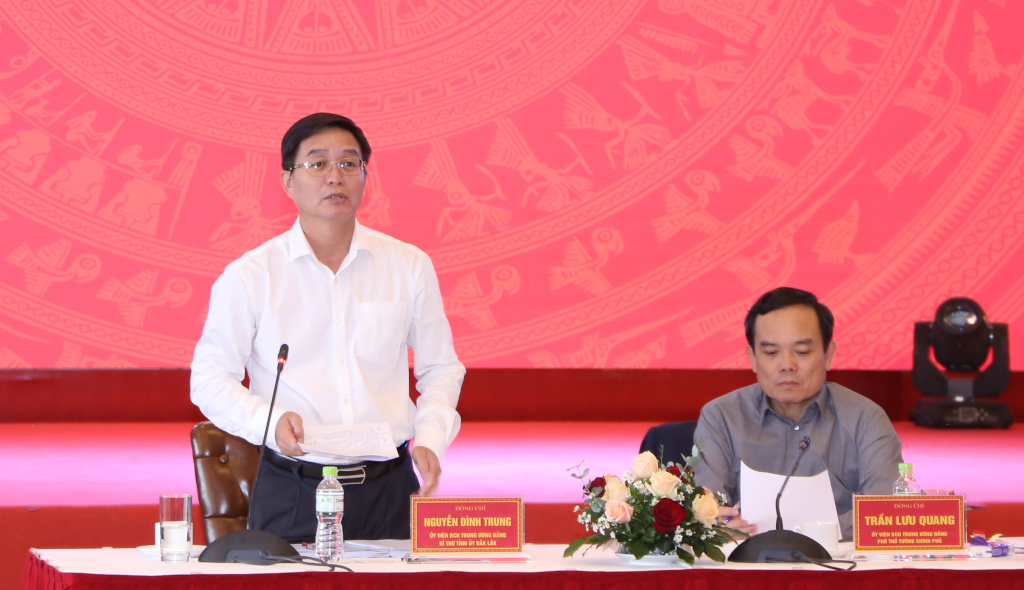
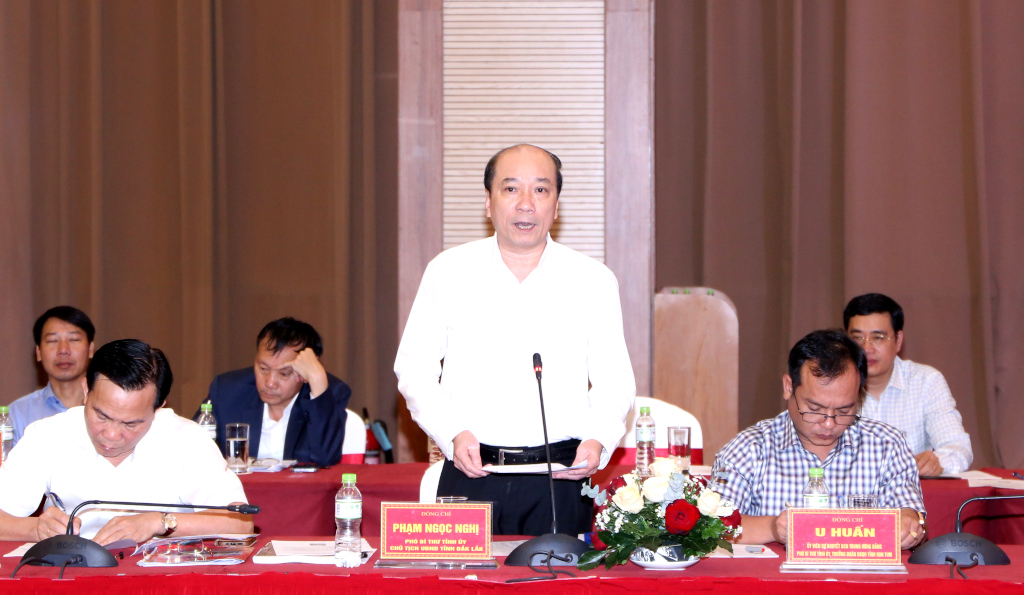
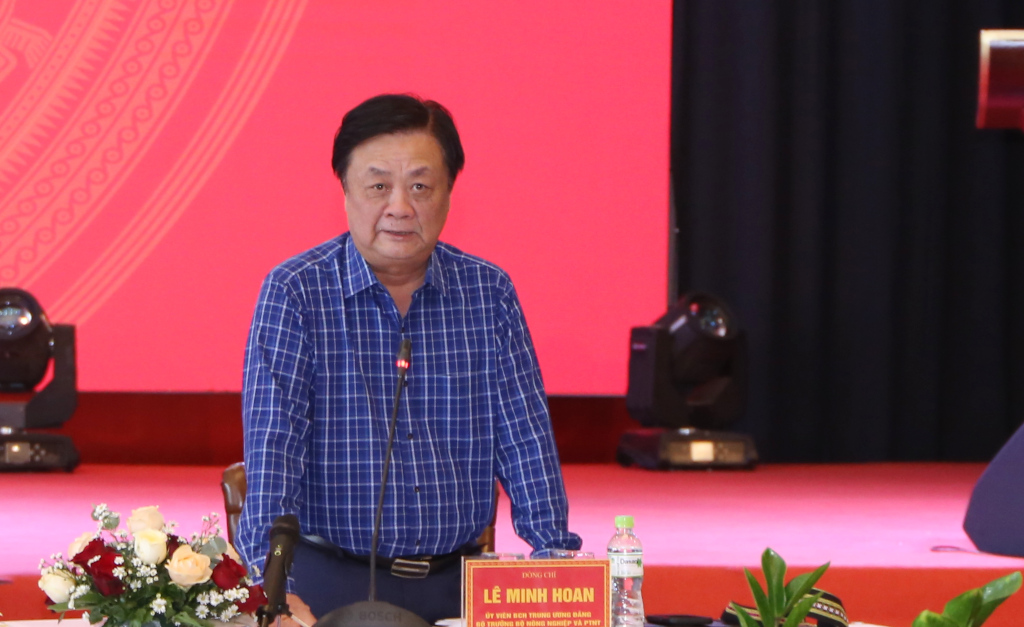
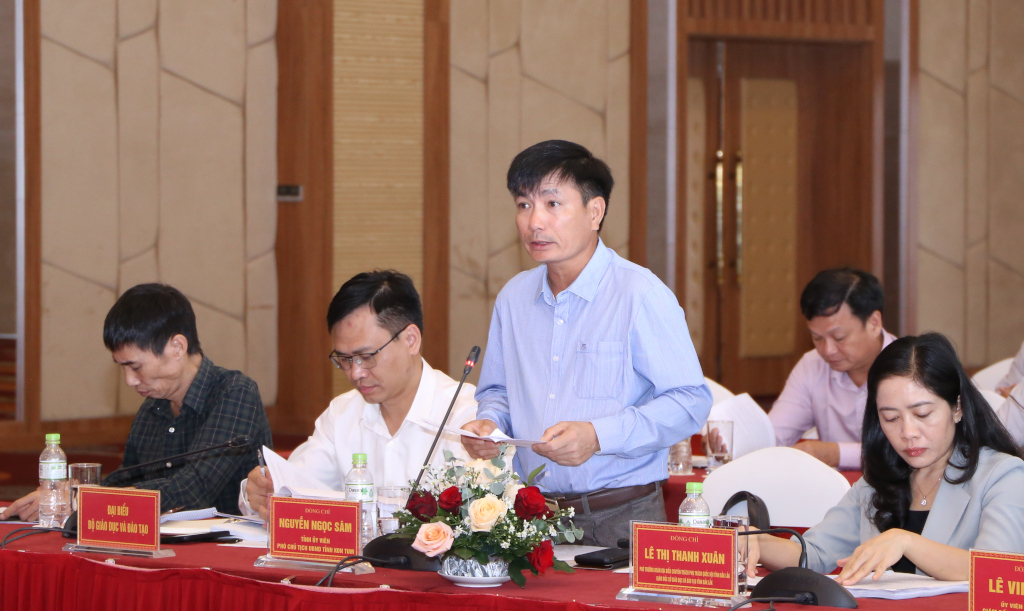
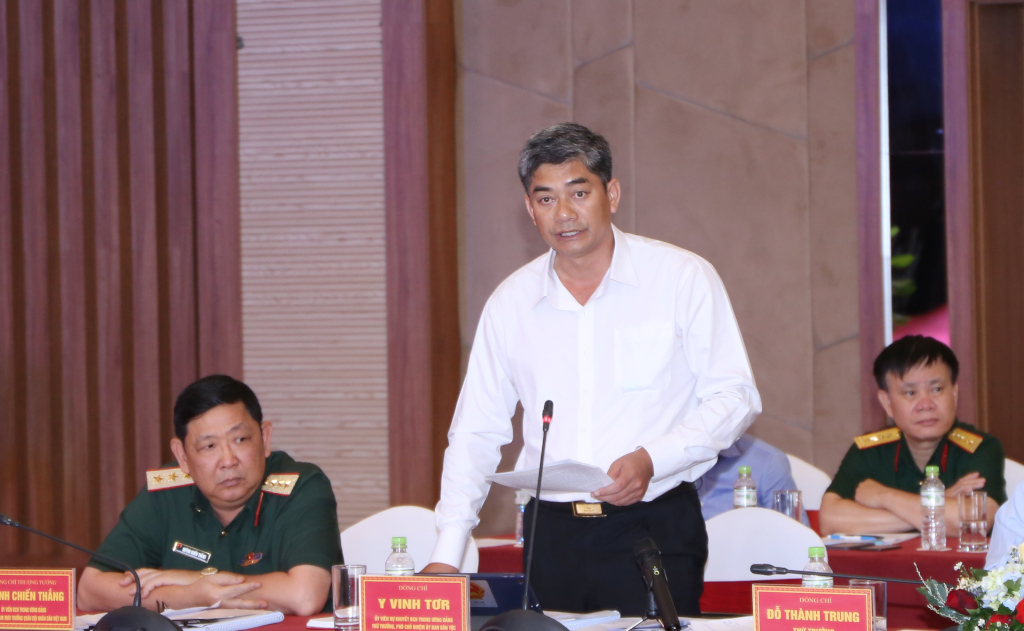
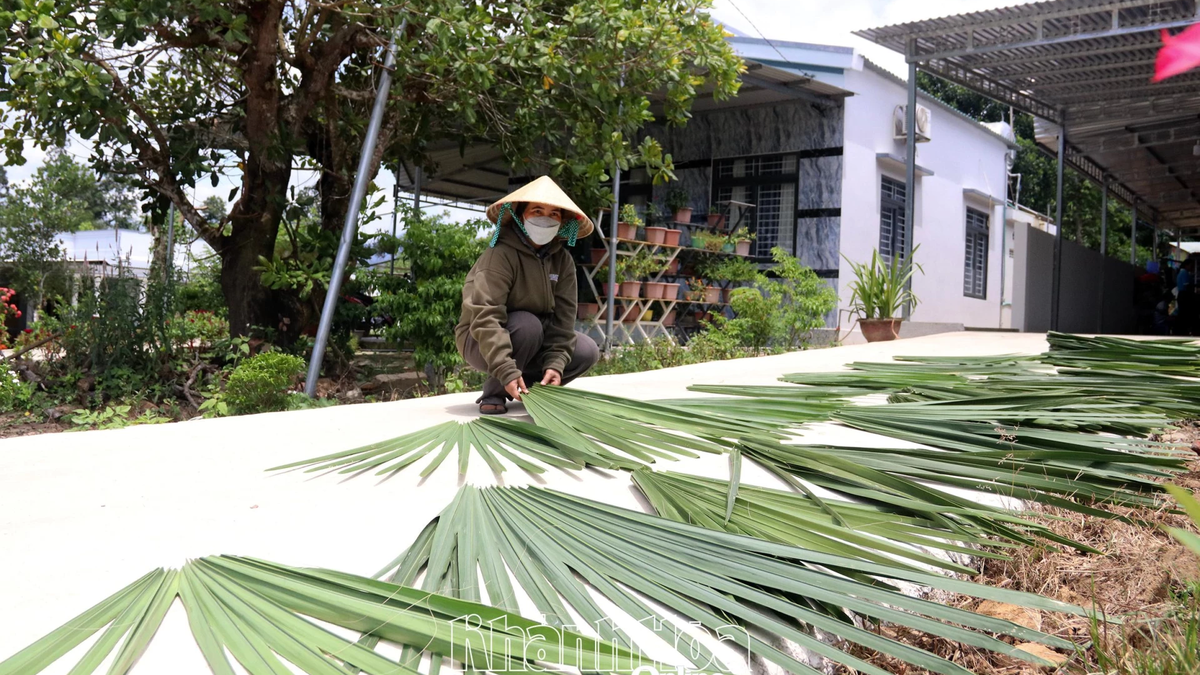
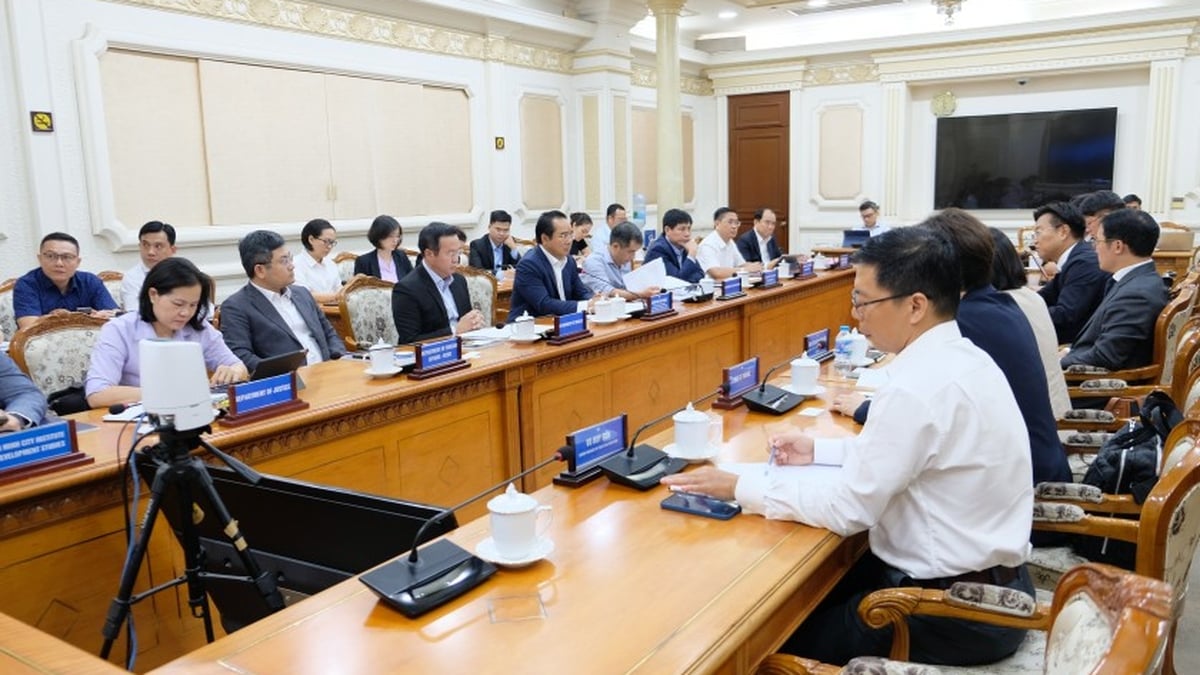
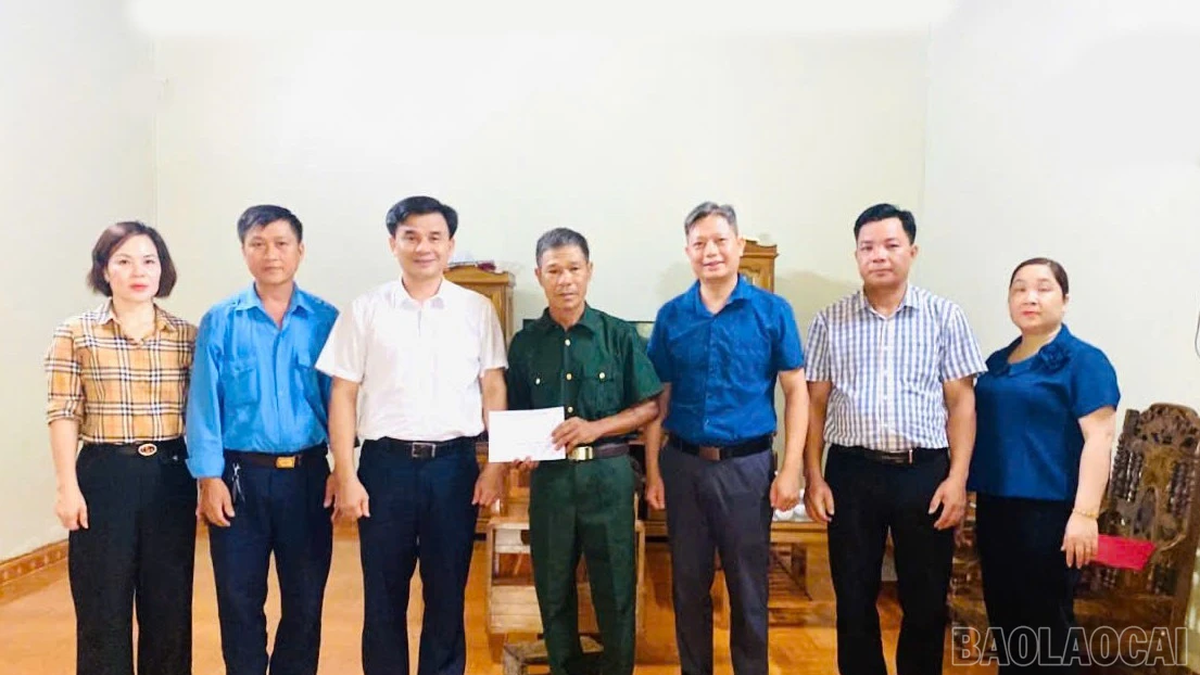

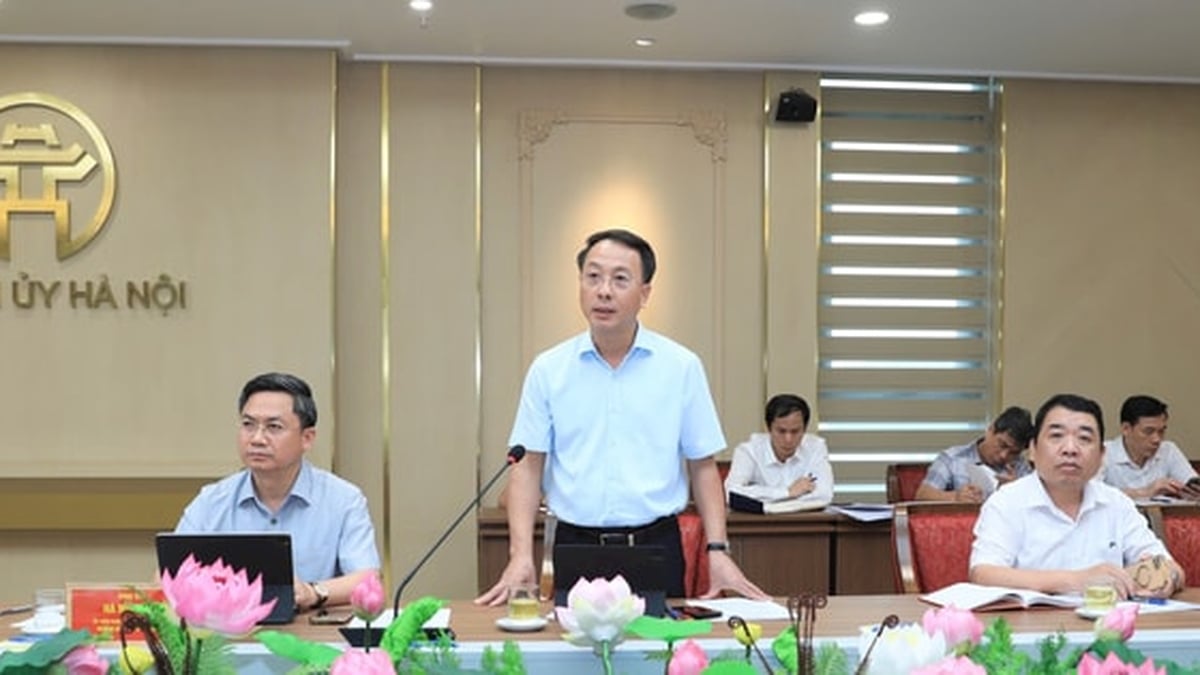

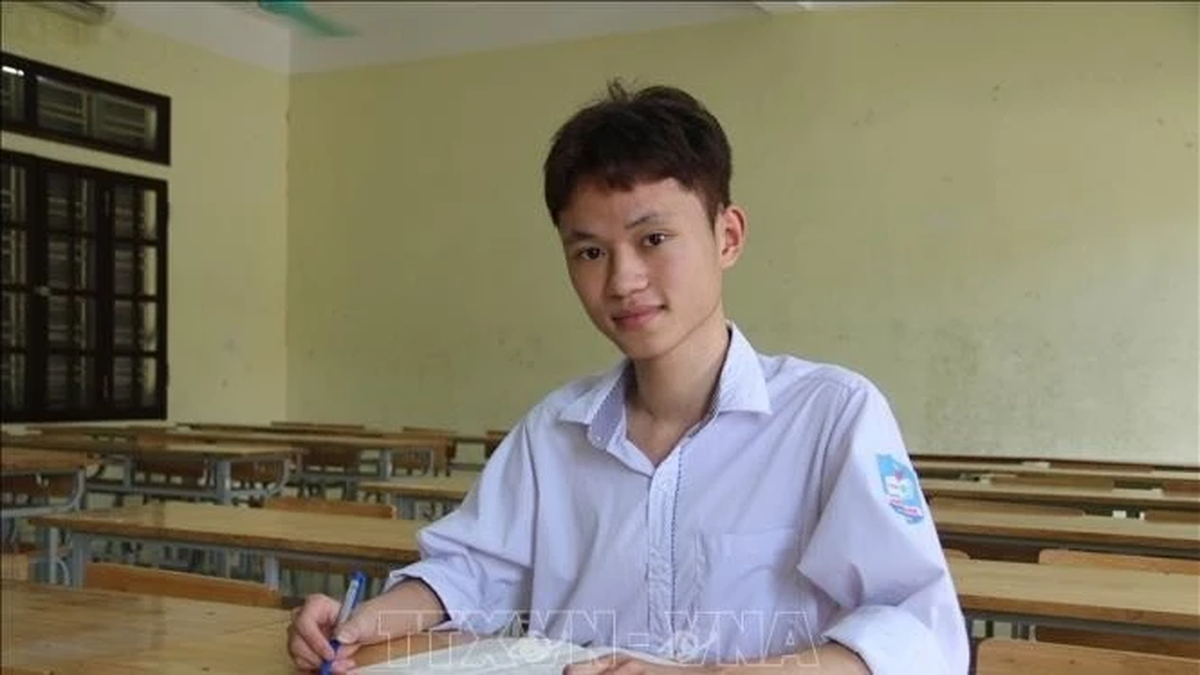
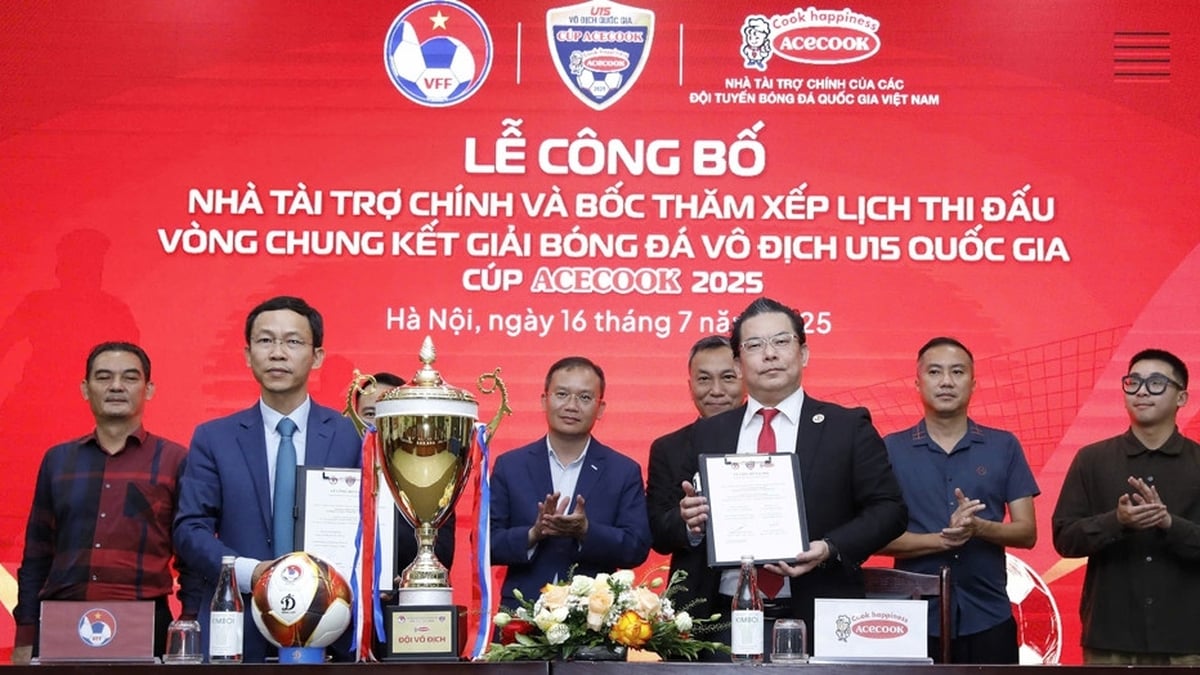
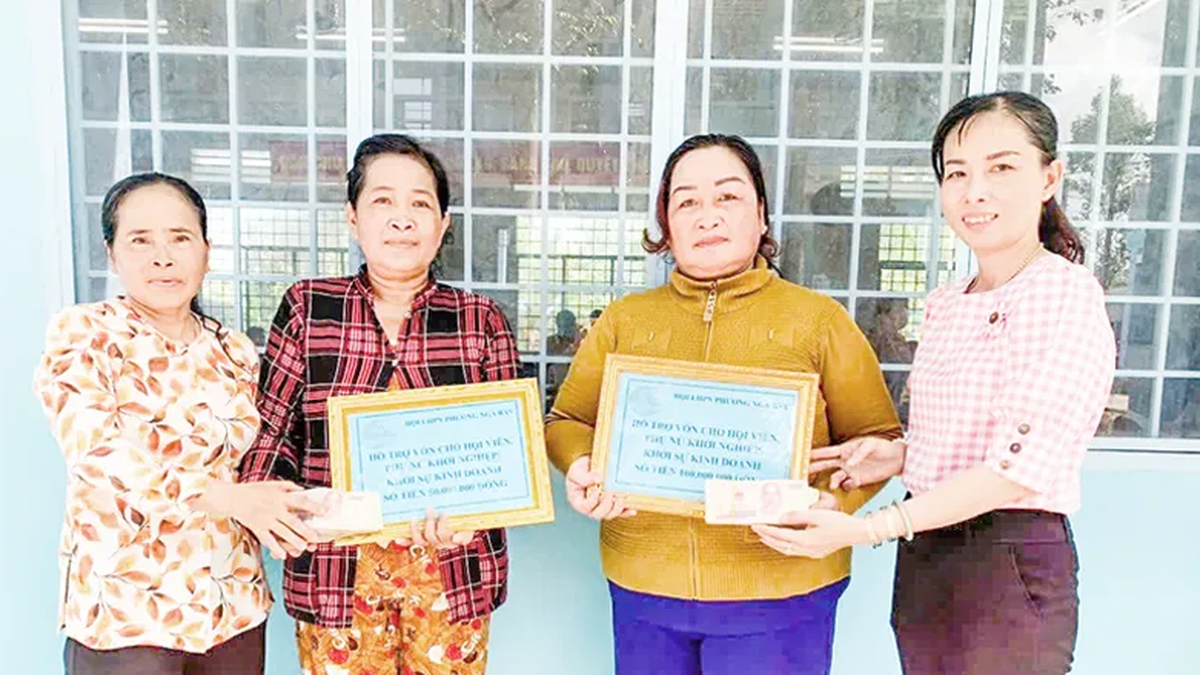
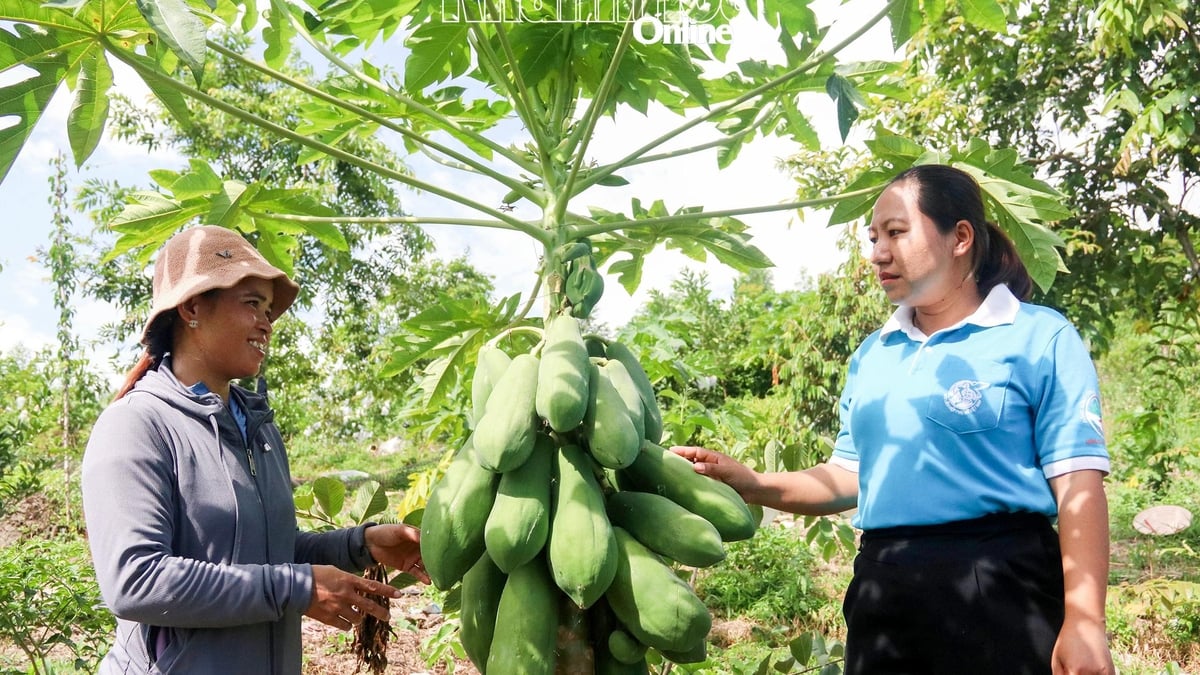








































![[Maritime News] More than 80% of global container shipping capacity is in the hands of MSC and major shipping alliances](https://vphoto.vietnam.vn/thumb/402x226/vietnam/resource/IMAGE/2025/7/16/6b4d586c984b4cbf8c5680352b9eaeb0)












































Comment (0)